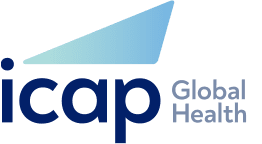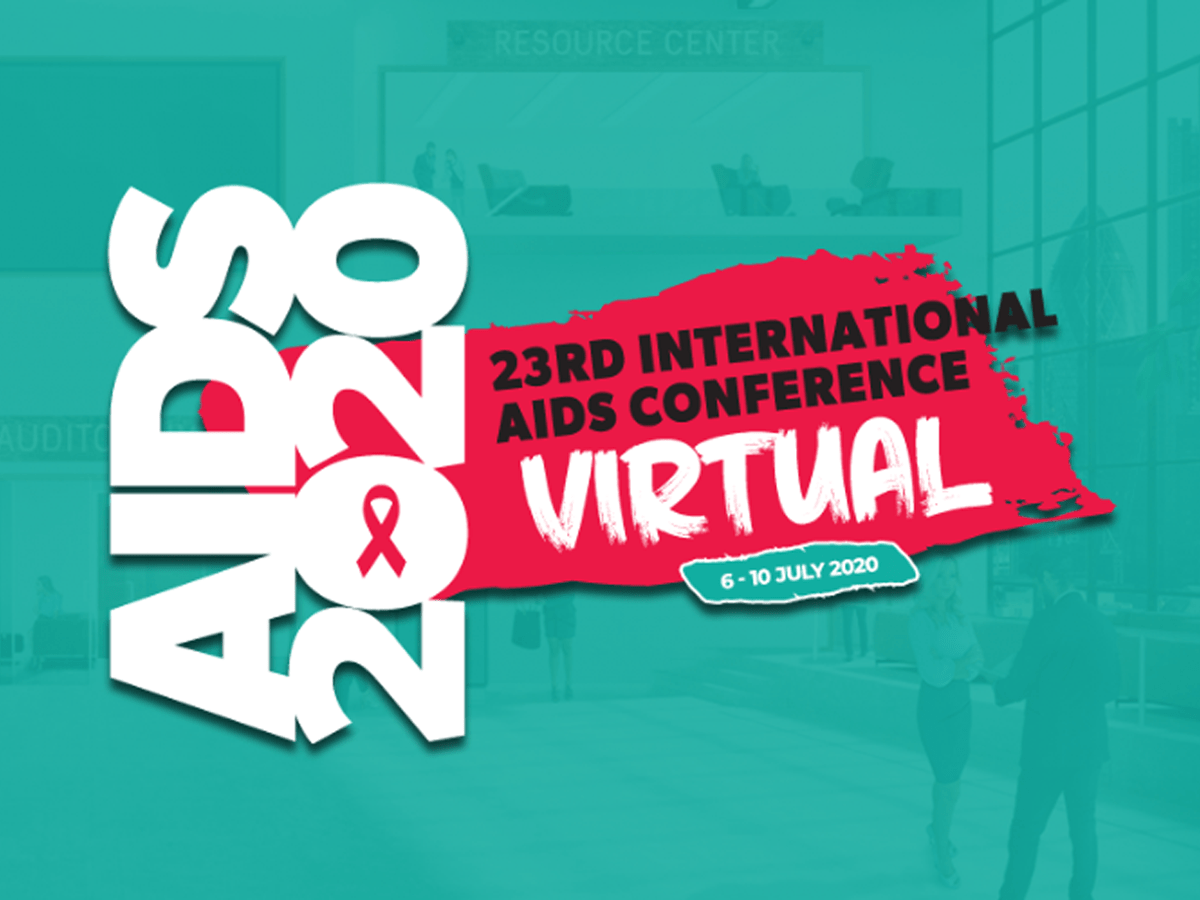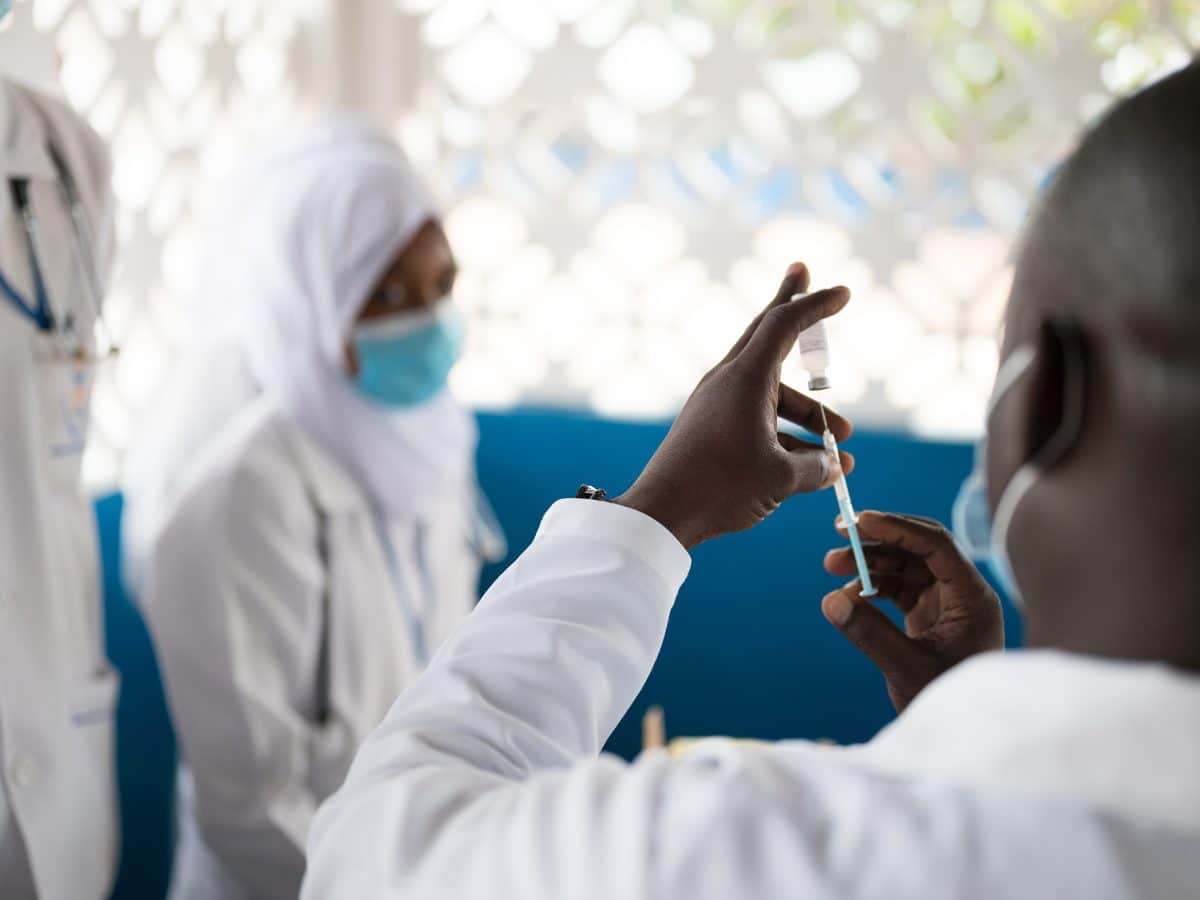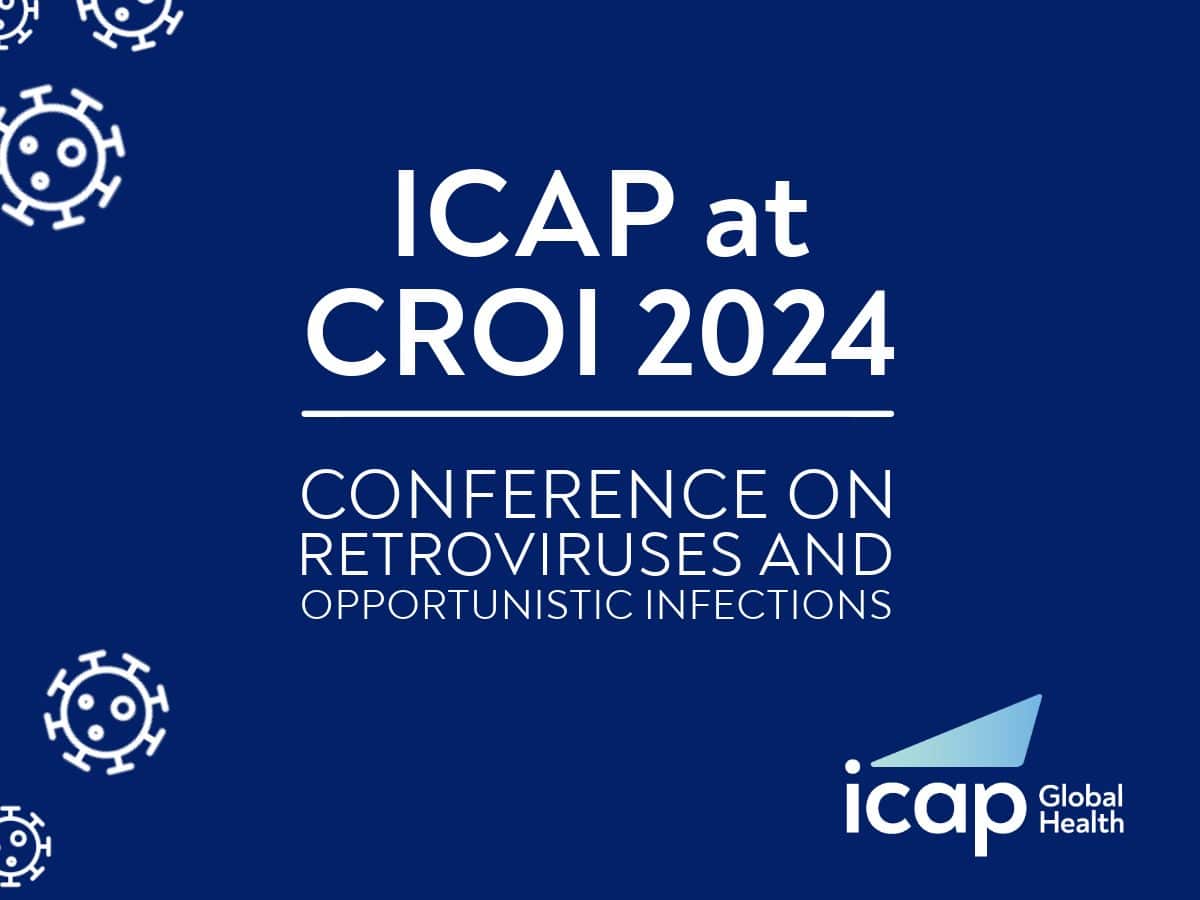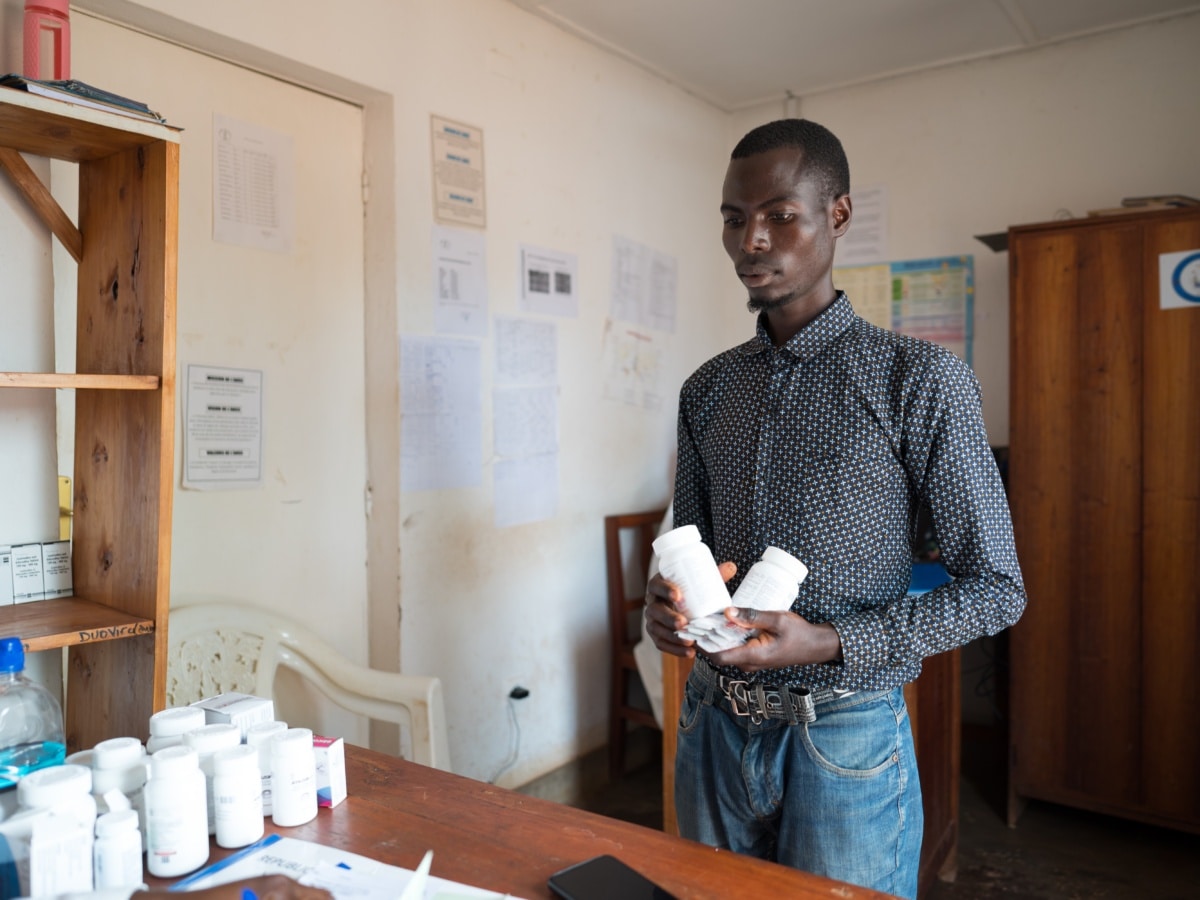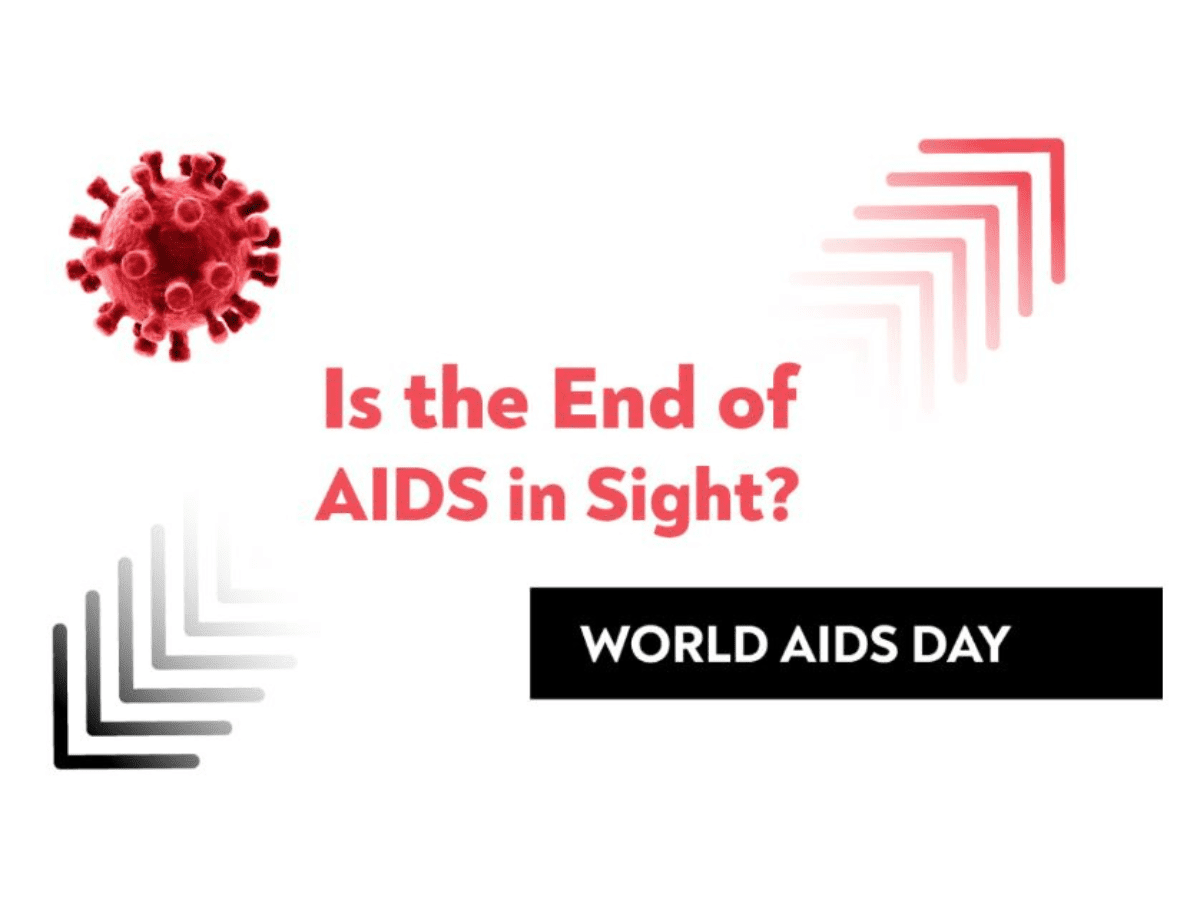-
Date: July 6-10, 2020
-
Location: Virtual - check conference site for instructions
ICAP at AIDS 2020
NEW: Publicly available conference sessions and e-posters
Satellites
2025 AIDS targets: Setting the next generation of goals for the global AIDS response
Monday, July 6, 6:00 a.m. – 7:00 a.m. PDT
(replay Monday, July 6, 4:00 p.m. – 5:00 p.m. PDT on Channel 2)
(on-demand via the Satellite – On-demand Channel)
Room: Satellite Channel 2
Organizer: UNAIDS
Session Description: The objectives of the satellite session are: to inform the AIDS2020 conference participants on the UNAIDS led global 2025 targets setting process, including estimation of the 2021 – 2030 impact and resource needs, and to gather views and inputs from the AIDS2020 conference participants on it.
- Opening remarks
Shannon Hader, UNAIDS - Keynote speaker: The response to HIV in the next decade
Ambassador Deborah Birx, US President’s Emergency Plan for AIDS Relief (PEPFAR) - The UNAIDS 2025 Targets process
Paul Delay, Co-chair of Steering Committee on 2025 AIDS Targets Adele Benzaken, Ministry of Health - Modelling the end of AIDS: Inside the black box
John Stover, Avenir Health - Outcomes of technical consultations on setting targets: Testing and Treatment and Integration
Wafaa El-Sadr, Columbia University - Outcomes of technical consultations on setting targets: Primary Prevention
Quarraisha Abdool Karim, CAPRISA - Outcomes of technical consultations on setting targets: Social Enablers
George Ayala, MPact - Next Steps and Timeline
Jose Antonio Izazola Licea, UNAIDS - Closing remarks
Anton Pozniak, Chelsea and Westminster Hospital NHS Trust
Resilient Chronic Care Systems: Differentiated Service Delivery for People with HIV and Non-Communicable Diseases
Monday, July 6, 7:30 a.m. – 8:30 a.m. PDT
(replay Wednesday, July 8, 2:00 a.m. – 3:00 a.m. PDT on Channel 2)
(on-demand via the Satellite – On-demand Channel)
Room: Satellite Channel 4
Organizer: ICAP at Columbia University
Session Description: The prevalence of non-communicable diseases (NCD) in people living with HIV (PLHIV) has been evident for years, as has the importance of providing integrated HIV and NCD services. Global and national guidelines increasingly call for HIV programs to provide integrated screening, prevention and treatment services for NCDs and their risk factors, including hypertension, diabetes, cardiovascular disease, lung diseases, cancers, and depression. However, the scale-up of HIV/NCD services has been slow. The introduction of differentiated service delivery models (DSDM) may provide an opportunity to address this gap, as countries introduce both less-intensive and more-intensive DSDM models. DSD models may also enhance the resilience of chronic care programs in the face of emergencies such as the COVID-19 pandemic.
- Welcome and Introductions
Wafaa El-Sadr, ICAP at Columbia University
Solange Baptiste, International Treatment Preparedness Coalition - Differentiated Service Delivery for HIV and NCDs
Miriam Rabkin, ICAP at Columbia University - Resilient NCD programs
Jennifer Cohn, Resolve to Save Lives - Leveraging DSD models to deliver integrated HIV and NCD care in Eswatini
Herve Kambale, Eswatini Ministry of Health - Integrated HIV and NCD testing in Kenya
Doris Naitore, ICAP at Columbia University - Diagnosing blood cancers in low-resource settings
Steven Kussick, PhenoPath
Leveraging Differentiated Service Delivery to Enhance Coverage and Completion of Tuberculosis Preventive Treatment (TPT)
Tuesday, July 7, 8:00 a.m. – 9:00 a.m. PDT
(replay Wednesday, July 8, 4:00 p.m. – 5:00 p.m. PDT)
(on-demand via the Satellite – On-demand Channel)
Room: Satellite Channel 3
Organizer: ICAP at Columbia University
Session Description: TB is the leading cause of death for people living with HIV, yet less than one third of new enrolees in HIV care initiated TB preventive treatment (TPT) in 2017. As countries scale up differentiated service delivery (DSD) for HIV, there are important implications for TPT services. Shifting “stable” recipients of HIV care to less-intensive models means that many PLHIV will be spending less time at health facilities. These changes create both challenges and opportunities for TPT. This satellite will convene implementers from MOH, WHO, PEPFAR, implementing partners, academic institutions and other stakeholders. The session will highlight the opportunity to leverage DSD models to enhance TPT services and showcase innovations and global best practices.
- Introductions and Framing Remarks
Greet Vandebriel, ICAP at Columbia University
Lynette Mabote, Treatment Action Group - Scaling up TB Preventive Treatment for People Living with HIV: A Global Imperative
Andrea Howard, ICAP at Columbia University - WHO Guidelines: TPT for PLHIV
Satvinder Singh, World Health Organization - Scaling up TPT in PEPFAR: Experience and Lessons Learned
Teeb Al-samarrai, Office of the Global AIDS Coordinator - Leveraging DSD models to expand TPT coverage in Uganda
Proscovia Namuwenge, Ministry of Health - Feasibility and Acceptability of Providing TPT in Community Antiretroviral Refill Groups (CARGs) in Zimbabwe
Clorata Gwanzura, Zimbabwe Ministry of Health and Child Care
COVID-19 mitigation approaches for HIV, tuberculosis, viral hepatitis and sexually transmitted infections
Tuesday, July 7, 8:00 a.m. – 9:00 a.m. PDT
(replay Wednesday, July 8, 12:00 p.m. – 1:00 p.m. PDT on Channel 2)
Room: Satellite Channel 2
Organizer: World Health Organization
Session Description: In a few short months COVID-19 has changed the way people live, work and access services around the world. The pandemic has raised serious challenges for health services including those related to HIV, tuberculosis, viral hepatitis and sexually transmitted infections. This session will present data and perspectives on how COVID-19 is impacting HIV and related health areas. It will share data, evidence and experiences of supply chain challenges and stockouts including in relation to ARVs. The session will include updates on modelling related to anticipated excess mortality and morbidity for HIV, hepatitis and STIs and highlight developments in finance and resource mobilization to support affected programmes. The session will also hear updates on innovations in community-based services and monitoring and hear personal perspectives from affected individuals and communities.
- Introductions and scene setting
James Chau, International Broadcaster - The global impact of COVID-19 on essential health services including HIV, tuberculosis, hepatitis, and sexually transmitted infections
Meg Doherty, World Health Organization - COVID-19 and HIV: the science and what the future holds
Wafaa El-Sadr, ICAP at Columbia University - COVID-19 and its impact across South Africa
Mary-Ann Davies, University of Cape Town - COVID-19 and HIV, TB and Malaria – the Global Fund response
Lady Roslyn Morauta, Global Fund to Fight AIDS, Tuberculosis and Malaria - COVID-19 and viral hepatitis: global survey findings
Cary James, World Hepatitis Alliance - Live discussion: emerging key themes and introductions
James Chau, International Broadcaster - Live discussion: Reflections from a personal perspective including examples from national networks of people living with HIV
Javier Hourcade Bellocq, International Society Civil Support - Live discussion: Science and community reflections from South Africa
Professor Salim Abdool Karim, Centre for the AIDS Programme of Research in South Africa (CAPRISA) - Live discussion: What’s required for a multisectoral response to HIV in a COVID-19 context?
Shannon Hader, UNAIDS - Live discussion: Building back better
Meg Doherty, World Health Organization
Bridging & Symposia Sessions
SS24 – Differentiated service delivery: One size does not fit all
Room: Symposia and bridging sessions On-Demand Channel
Moderator: Susan Michaels Strasser, ICAP at Columbia University
Session Description: This session will highlight person-centred approaches that simplify and adapt service delivery across the HIV prevention and care continuum to reflect the needs and circumstances of people living with and vulnerable to HIV while reducing unnecessary burdens on them and the health system. It will use effective differentiated service delivery models that demonstrate person-centred approaches across the HIV continuum and their focus population, outreach strategies, resources required, successful outcomes and potential for replication and scale up.
- Introduction
Susan Michaels Strasser, ICAP at Columbia University - Overview of differentiated service delivery concepts: Novel community-based models
Peter O. Preko, CQUIN – ICAP at Columbia University - Preparing for differentiated service delivery by addressing stigma with health care workers in Myanmar
Khin Nyein Chan, ICAP at Columbia University in Myanmar - Meeting the HIV needs of youth in the Bay area experiencing homelessness through community-based HIV health services in San Francisco
Carol Dawson-Rose, University of California, San Francisco - Civil society perspective on differentiated service delivery for women living with HIV: A case study of 4M Mentor Mothers Network CIC (UK)
Longret Kwardem, 4M Mentor Mothers Network CIC - Engaging civil society participants in designing differentiated service delivery models for people at high risk for disease progression in Uganda
Cordelia Katureebe Mboijana, Ministry of Health - Withdrawn: Engaging civil society participants in designing differentiated service delivery models for people at high risk for disease progression in Uganda
Cordelia Katureebe Mboijana, Ministry of Health - Conclusion
Susan Michaels Strasser, ICAP at Columbia University
BS03 – Ending the HIV epidemic: Optimism, realism and disparities
Room: Symposia and bridging sessions On-Demand Channel
Moderators: Mitchell Warren, AVAC; Hasina Subedar, South African National Department of Health
Session Description: This session offers four perspectives on where we are and where we should go as we aim to end the HIV epidemic around the world. Speakers will take four distinct perspectives, each speaking across geographies and populations.
- Introduction
Mitchell Warren, AVAC - Optimism
Mitchell Warren, AVAC - Realism
Heidi Van Rooyen, Human Sciences Research Council - Disparities
Greg Millett, amfAR - Getting there
Susan Michaels Strasser, ICAP at Columbia University - Conclusion
Hasina Subedar, South African National Department of Health
Global Village & Youth Program
Tuesday, July 7
Broadcast via Global Village Sessions and Youth Pavilion
Broadcast and on-demand via AIDS Conference Social Media (Facebook) (Twitter) (Instagram) (YouTube)
Hosted by Lauren Parmley (ICAP at Columbia University) – Featuring Elaine Abrams (ICAP at Columbia University)
Thursday, July 9
Broadcast via Global Village Sessions and Youth Pavilion
Broadcast and on-demand via AIDS Conference Social Media (Facebook) (Twitter) (Instagram) (YouTube)
Hosted by Austin Okumu (ICAP Adolescent Photography Workshop participant, recipient of IAS scholarship)
Art Exhibits Channel
Youth Force “Stories of Resilience” exhibit, featuring a video produced by Mercy Nyaboke (ICAP Adolescent Photography Workshop participant, recipient of IAS scholarship)
Oral Abstracts
- Healthcare worker perspectives on client volumes and workload with differentiated service delivery models in the Kingdom of Eswatini
Allison B. Hughey, Janki Tailor, Anita Hettema, Peter Preko, Miriam Rabkin, Siphiwe Shongwe, Rudo Kuwengwa, Nomthandazo Lukhele, William Reidy, Herve Kambale
OAE0405 – Part of “OAE04 – Innovation in initiation, treatment and care: Differentiated Service Delivery” (Abstract Sessions On-Demand Channel) - Designing for hope: Addressing adherence by looking beyond the pill. A co-creation approach to addressing multidimensional factors that impact ART adherence and retention among adolescents living with HIV in Mozambique
Shauna Carey, Brynn Kolada, Bruno Olmedo, Cady Shadwick, Hitesh Singhal, Joana Falcao, Elaine J. Abrams, Lauren Weinstein
OAD0804 – Part of “OAD08 – TikTok: Time’s running out for adolescent and young people’s health” (Abstract Sessions On-Demand Channel) - Family support as a source of resilience to counter HIV-related stigma among adults on antiretroviral therapy in urban Zimbabwe
Tsitsi B. Masvawure, Joanne E. Mantell, Munyaradzi Mapingure, Jennifer Zech, Clorata Gwanzura, Tsitsi Apollo, Godfrey Musuka, Rodrigo Boccanera, Martin Msukwa, Gavin George, Michael Strauss, Miriam Rabkin
OAD0104 – Part of “OAD01 – Breaking the silence of stigma: Innovative approaches” (Abstract Sessions On-Demand Channel)
Poster Discussion Sessions
- A Quality Improvement Collaborative (QIC) for HIV-positive adolescents to improve immediate ART initiation at 25 Health Facilities (HF) in Lusaka, Zambia
Gillian Dougherty, Rodrigo Boccanera, Mary Adetinuke Boyd, Tracey Gantt, Siphiwe Chilungu Kasonka, Prisca Kasonde, Nila Kaetano, Caitlin Madevu-Matson, Phales Milimo, Mukuka Mwamba, Brenda Senyana, Fatima Tsiouris, Lauren Walker, Nancy Zyongwe, Alice Zulu, Miriam Rabkin
PDE0307 – Part of “PDE03 – From faith to MTV: Expanding the reach of HIV services” (Abstract Sessions On-Demand Channel) - Using mixed methods in discrete choice experiments to determine patients’ preferences for HIV and TB services
Yael Hirsch-Moverman, Joanne E. Mantell, Jennifer M. Zech, Michael Strauss, Gavin George, Tsitsi B. Masvawure, Miriam Rabkin
PDD0204 – Part of “PDD02 – Harnessing the power of technology and innovative methodology” (Abstract Sessions On-Demand Channel)
Virtual Posters
Angola
- Optimizing HIV testing at the family planning clinic of a tertiary-care hospital in Luanda, Angola
Raul Nhanombe, Carlos Laudari, João Pires, Joana Maria, Arieth Cruz, Amélia Ukuahamba, Marta Fonseca, Cláudia Barros, Lúcia Furtado, Ayan Jha, Mohammed A. Mahdi, Roberta Sutton, Sungani Zidana-Ndovi, Juliana Soares Linn
PEE1515 – Part of “E-posters Track E” (Poster Channel – Track E)
- Optimization of HIV Testing among patients with respiratory symptoms in a TB clinic in Luanda, Angola
Raul Nhanombe, Carlos Laudari, João Pires, Celestino Teixeira, Amélia Ukuahamba, Carlos Mota, Marta Cazeia, Lúcia Furtado, António Dissadidi, Eduarda Gusmão, Ayan Jha, Mohammed A. Mahdi, Roberta Sutton, Sungani Zidana-Ndovi, Juliana Soares Linn
PEE1618 – Part of “E-posters Track E” (Poster Channel – Track E)
Côte d’Ivoire
- Out-of-pocket health spending was not associated with missed appointments for adults on antiretroviral therapy in Côte d’Ivoire
Martin Msukwa, Rachel Stelmach, Miriam Rabkin, Kouame Abo, Irma Ahoba, Mahena Gildas Anago, Rodrigo Boccanera, Hermann Brou, Rebecca Flueckiger, Kieran Hartsough, Jennifer Zech, Rachel Nugent
PEE1379 – Part of “E-posters Track E” (Poster Channel – Track E)
DRC
- Social and sexual network strategies for targeted identification of HIV-positive clients among the key population (KP) in Democratic Republic of the Congo (DRC)
Juliana Soares Linn, Ayan Jha, Tania Tchissambou, Yves Ilunga, Sarina Dane, Sungani Zidana-Ndovi, Kieran Hartsough, Faustin Malele Bazola
PEE1614 – Part of “E-posters Track E” (Poster Channel – Track E)
Eswatini
- Absence of antiretroviral drugs in blood samples of adults self-reporting antiretroviral therapy (ART) use in Eswatini is associated with youth, not cost of travel
Cebisile Ngcamphalala, Nontobeko Gwebu, Mpumelelo Ndlangamandla, Ruben Sahabo, Mduduzi C. Shongwe, Zandile Mnisi, Trong T. Ao, Yingfeng Wu, Harriet Nuwagaba-Biribonwoha
PEE1467 – Part of “E-posters Track E” (Poster Channel – Track E) - Breastfeeding duration and correlates of breastfeeding cessation in Eswatini
Ntombifuthi J. Gama, Cebisile Ngcamphalala, Nontobeko Gwebu, Mpumelelo Ndlangamandla, Mduduzi C. Shongwe, Ruben Sahabo, Zandile Mnisi, Yingfeng Wu, Harriet Nuwagaba-Biribonwoha
PED1272 – Part of “E-posters Track D” (Poster Channel – Track D)
- HIV disease burden among older adults (50+ years) in Eswatini: Success in mitigating the consequences of a sustained severe HIV epidemic
Ntombifuthi Ginindza, Cebisile Ngcamphalala, Nontobeko Gwebu, Mpumelelo Ndlangamandla, Muna Mabuyabala, Ruben Sahabo, Rejoice Nkambule, Zandile Mnisi, Yingfeng Wu, Harriet Nuwagaba-Biribonwoha
PED0781 – Part of “E-posters Track D” (Poster Channel – Track D)
- Preferences for tuberculosis preventive treatment (TPT) among children with HIV in Eswatini: a discrete choice experiment
Yael Hirsch-Moverman, Michael Strauss, Joanne E. Mantell, Gavin George, Wafaa El-Sadr, Arnold Mafukidze, Sisi Dube, Andrea Howard
PEE1425 – Part of “E-posters Track E” (Poster Channel – Track E)
- Effectiveness of a combination approach among HIV-positive individuals in Eswatini on consistency of engagement in care and viral load suppression
Ivy Mushamiri, Matthew R. Lamb, Veli Madau, Jessica Justman, Wafaa M. El-Sadr
PEE1442 – Part of “E-posters Track E” (Poster Channel – Track E)
- Retention of pregnant women living with HIV in prevention of mother-to-child transmission services before and after patient feedback surveys in Eswatini
Chloe A. Teasdale, Amanda Geller, Siphesihle Shongwe, Arnold Mafukidze, Michelle Choy, Eduarda Pimentel De Gusmão, Caroline Ryan, Trong Ao, Tegan Callahan, Surbhi Modi, Elaine J. Abrams
PEE1387 – Part of “E-posters Track E” (Poster Channel – Track E)
Ethiopia
- “You are not benefiting us by keeping us away”: Why do some eligible people on antiretroviral therapy (ART) decline to participate in Ethiopia’s appointment spacing model with 6-month ART dispensing?
Joanne Mantell, Tamrat Assefa, Mitike Molla, Jennifer Zech, Laura Block, Dejere Deguma, Zenebe Melaku, Peter Preko, Miriam Rabkin
PEE1625 – Part of “E-posters Track E” (Poster Channel – Track E)
Multi-Country/Global
- Training in Healthcare Settings to Reduce Stigma and Discrimination towards Key Populations: Coverage and Opportunities for Improvement
Cassia Wells, Angela Aidala,Tiffany Harris, Kieran Hartsough, Julia Frieze, Vienna Nightingale, Kent Klindera, Hannah Gardi, Myat Htoo Razak, Tracey Gantt, Evelyn Rodriguez
PED1265 – Part of “E-posters Track D” (Poster Channel – Track D)
- Characteristics of older male partners of adolescent girls and young women (AGYW) in four Eastern and Southern African countries, PHIA 2015-2017
Susie Hoffman, Joanne E. Mantell, Chunhui Wang, Ivy Mushamiri, Andrea Low
Session information pending - Rapid Adaptation of HIV Differentiated Service Delivery Program Design in Response to COVID-19: Results from 14 Countries in Sub-Saharan Africa
Peter Preko, Siphiwe Shongwe, Alemtsehay Abebe, Alren O. Vandy, Dário Aly, Franck Boraud, Samretta Caldwell, Richard Ingwe Chuy, Clorata Gwanzura, Hervé N. Kambale, Josen Kiggundu, Lazarus Momanyi, Priscilla Lumano-Mulenga, Stanley Ngoma, Mokgadi Phokojoe, Mastidia Rutaihwa, Miriam Rabkin
LBPEE44 – Part of “Track E late-breaker posters” (Poster Channel – Track )
Kenya
- Group antenatal care for improving retention of adolescent and young pregnant women living with HIV in Kenya
Chloe A. Teasdale, Judith Odondi, Catherine Kidiga, Michelle Choy, Bernadette Ngeno, Boniface Ochanda, Surbhi Modi, Doris Odera, Elaine J. Abrams
PEE1407 – Part of “E-posters Track E” (Poster Channel – Track E)
- Experiences of intimate partner violence among HIV-positive pregnant women in a randomized trial in Kenya: analysis of their effects on attrition from HIV care
Joel Njah, Mary Ann Chiasson, Ruby Fayorsey, and William Reidy
PEC0730 – Part of “E-posters Track C” (Poster Channel – Track C)
- Achieving the “third 90” for Adolescents and Young People on Antiretroviral Therapy in Eastern Kenya: Early Results from a Quality Improvement Collaborative to improve viral load utilization
Gillian Dougherty, Dunstan Achwoka, Steve Akoth, Rodrigo Boccanera, Tracey Gantt, Mark Hawken, Isaac Leting, Caitlin Madevu-Matson, Redempta Mutei, Immaculate Mutisya, Catherine Ngugi, Doris Naitore, Lennah Omoto, Brenda Senyana, Fatima Tsiouris, Anne Wakoli, Lauren Walker, Miriam Rabkin|
PEE1535 – Part of “E-posters Track E” (Poster Channel – Track E)
Mozambique
- Improving retention and viral suppression among HIV positive pregnant women in Nampula Mozambique: results from a quality improvement collaborative
Ilka Rondinelli, Rodrigo Boccanera, Mahoudo Bonou, Horacio Caliche, Gillian Dougherty, Silêncio Francisco, Eduarda Pimentel de Gusmão, Helder Macul, Cândido Manjate, Lucas Matavel, Orlando Mungambe, Isabel Pereira, Egidio Simbine, Roberta Sutton, Fatima Tsiouris, Elidio Ussene, Marilena Urso, Mirriah Vitale, Lauren Walker, Miriam Rabkin
PEE1383 – Part of “E-posters Track E” (Poster Channel – Track E)
- Population Characteristics and Implications for Adherence and Retention Interventions among Adolescents Living with HIV in Mozambique
Allison Zerbe, Kirsty Brittain, Joana Falcao, Eduarda Pimentel De Gusmão, Landon Myer, Elaine J. Abrams
PED0826 – Part of “E-posters Track D” (Poster Channel – Track D)
- Population Characteristics and Implications for Adherence and Retention Interventions among Pregnant Adolescent Girls Living with HIV in Mozambique
Joana Falcao, Kirsty Brittain, Allison Zerbe, Nahida Chakhtoura, Eduarda Pimentel De Gusmão, Roberta Sutton, Mirriah Vitale, Elaine J. Abrams
PED0817- Part of “E-posters Track D” (Poster Channel – Track D)
- HIV Health Literacy among Adolescents Living with HIV in Northern Mozambique
Joana Falcao, Kirsty Brittain, Allison Zerbe, Eduarda Pimentel De Gusmão, Landon Myer, Elaine J. Abrams
PED0822 – Part of “E-posters Track D” (Poster Channel – Track D)
- Mental health problems impact adherence more in male than female adolescents with HIV in Mozambique
Nadia Nguyen, Claude Ann Mellins, Joana Falcao, Kirsty Brittain, Allison Zerbe, Ira Wilson, Bill Kapogiannis, Elaine J. Abrams
PED0852 – Part of “E-posters Track D” (Poster Channel – Track D)
South Sudan
- I-Surge Strategy in South Sudan: Improving HIV Case Identification and ART Enrollment Across Health Facilities in South Sudan
Habtamu Ayalneh Worku, Shambel Aragaw, Florence Bayoa, Kieran Hartsough, Susan Michaels-Strasser
PEE1521 – Part of “E-posters Track E” (Poster Channel – Track E)
Tanzania
- DREAMS: A multidimensional approach to promote HIV prevention and address risk reduction among adolescent girls and young women in Western Tanzania
Vanessa Anyoti, Naima Bahati, Omari Msumi, Damian Laki, Hawa Mziray, Shabani Kingazi, Daniel Nyogea, Macdonald Mahiti, Fernando Morales, Jonas P. Kessy, Leonce Rwamulaza, Charles Mwafimbo, Neema Makyao,Oscar Ernest Rwabiyago, Kokuhumbya Kazaura, Daniel Magese, Jane Kitalile, Julie Franks, Cassia Wells, Brenda Senyana, Mohammed Ali Mahdi, Eduarda Pimentel de Gusmão
PED1135 – Part of “E-posters Track D” (Poster Channel – Track D)
Zambia
- Achieving Epidemic Control: The 95-95-95 Outcomes of Daily Data Review and Use in Zambia’s Eastern and Western Provinces
Thierry Mukwa Malebe, Prisca Kasonde, Phillip Koni, Parmley Lauren, Felix Ndagije, Susan Michaels-Strasser
PEE1525

